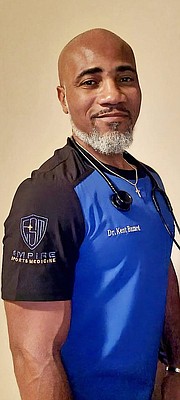IN the realm of sports, the pursuit of peak performance is a complex and nuanced journey. As a sports medicine physician and a certified sports performance coach, I have witnessed the evolution of sports performance training from traditional weightlifting to a more holistic approach.
To our active sports enthusiasts, ranging from amateur to professional levels, understanding this evolution is key to unlocking your full potential.
Defining Sports Performance Training: A Holistic Approach
Sports performance training transcends traditional workouts. It is an integrated approach aimed at enhancing an athlete’s overall abilities, including strength, power, speed, agility and endurance. The purpose is not merely to excel in physical prowess but to develop a comprehensive skill set that translates directly to improved performance in specific sports.
Strength vs. Power: Tailoring Training to Sports Needs
A common misconception is equating strength with power. Strength is the ability to exert force, while power is about exerting that force quickly.
A sprinter, for instance, requires explosive power to burst off the blocks, while a weightlifter needs sheer strength. Training programmes must be customised to these distinct needs. Research in the Journal of Strength and Conditioning Research supports the idea that different sports require different strength and power conditioning protocols.
Biomechanics: The Science Behind Movement
Integrating biomechanics in training programmes ensures that movements are both efficient and safe. By understanding the mechanical laws that govern movements, athletes can improve their technique to enhance performance and minimise injury risk. For example, analysing the bio-mechanics of a tennis serve can lead to adjustments that increase serve speed while reducing shoulder strain.
Sport-Specific Training: Mimicking the Field of Play
Key to enhancing athletic performance is sport-specific training, a method that precisely rep-licates the demands of a given sport. For instance, a basketball player’s regimen should include exercises focusing on vertical jumps and lateral movements, directly mirroring on-court actions. This approach is at the heart of successful programmes like those at Empire Sports Medicine, where training is meticu-lously tailored to the unique requirements of each athlete’s sport.
Moreover, this specificity extends beyond physical exercises. It includes cognitive and tactical training, such as decision-making drills for soccer players, which replicate in-game scenarios. For swimmers, it might involve perfect-ing stroke techniques and turn efficiency, emphasizing movements specific to their events. At Empire Sports Medicine, we under-stand that each sport has its rhythm, pace, and unique set of demands, and our training programmes are designed to mirror these specifics as closely as possible.
Incorporating technol-ogy, like motion analysis tools, further refines this approach by offering detailed insights into an athlete’s movement pat-terns, allowing for even more personalised train-ing strategies. This level of customisation not only enhances performance but also significantly reduces the risk of sport-specific injuries. By understanding and training the body in the context of the sport’s unique demands, athletes can achieve a level of preparedness that transcends general fitness, making them more agile, efficient, and adept in their specific sporting arena.
Injury Prevention and Treatment: A Dual Focus in Athletic Excellence Injury prevention and treatment are essential aspects of sports performance training. This approach goes beyond just muscle strengthening, encompassing flexibility and balance exercises to lower the risk of injuries.
When injuries do occur, it is crucial to integrate treatment with performance training for a complete recovery. This method is effectively demonstrated by professional sports teams, where sports medicine professionals and perfor-mance coaches collaborate closely to align an athlete’s rehabilitation with their performance goals.
The strategy includes techniques like proprioceptive training, which enhances body awareness and uses stability tools to improve balance. Ensuring adequate rest, proper nutrition, and hydration are also fundamental in recovery and injury prevention. Educating athletes about the signs of over- training and the importance of reporting discomfort is key to preventing more serious injuries. This comprehensive approach not only treats but also prevents future injuries, maintaining the athlete’s long-term health and peak performance.
Real-Life Solutions: Translating Theory into Practice
To implement these concepts, start with a thorough assessment of your specific sport’s demands and your current abilities. Consult with a sports performance coach to develop a tailored training plan. Regularly review and adjust this plan as you progress and as your needs change.
In Conclusion: A Comprehensive Path to Excellence Sports performance
training is more than just lifting weights or running drills. It is a comprehensive approach that considers the unique demands of each sport and each athlete. By embracing this multifaceted training philosophy, athletes can push their boundaries and achieve new heights of performance. This article aims to shed light on the sophisticated nature of sports performance train-ing, guiding athletes in their pursuit of excellence. Remember, the journey to peak performance is not a one-size-fits- all path but a personalised and evolving process. As we strive for greatness in our respective sports, let us embrace the full spectrum of training methodologies available to us.
• Dr Kent Bazard is a Bahamian sports medi-cine physician, sports performance coach, sports nutrition specialist and founder of Empire Sports Medicine. Our mission is to empower athletes to reach new heights while safeguarding their health and well-being. We understand the unique demands of sports activities, and we are dedicated to helping athletes prevent injuries, overcome challenges, optimise nutrition and performance.




Comments
Use the comment form below to begin a discussion about this content.
Sign in to comment
Or login with:
OpenID